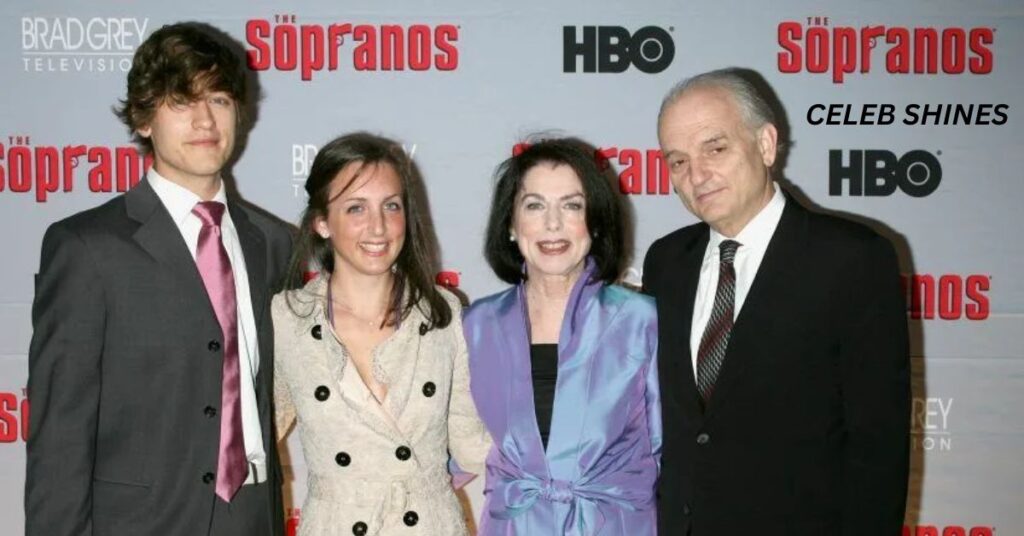David Chase’s net worth has been significantly boosted by streaming revenue, as The Sopranos continues to thrive on digital platforms. His success in the entertainment industry extends beyond television, with his work on films like The Many Saints of Newark, which further solidified his financial standing. Chase’s ability to craft compelling narratives has kept his legacy alive across multiple generations.
Born and raised in a New Jersey upbringing, Chase drew inspiration from his surroundings to create authentic, character-driven stories. His wealth is also supported by real estate investments, allowing him to expand his financial portfolio beyond Hollywood. His influence on modern television remains unparalleled, shaping crime dramas for years to come.
David Chase Bio
| Attribute | Details |
| Full Name | David Chase |
| Profession | TV Creator, Writer, Director, Producer |
| Notable Work | The Sopranos, Not Fade Away, The Many Saints of Newark |
| Net Worth | Estimated around $80 million |
| Date of Birth | August 22, 1945 |
| Birthplace | Montclair, New Jersey, USA |
| Notable Achievements | Multiple Emmy Awards, Sopranos revolutionized TV, influenced mobster drama genre |
| Key Themes | Family dysfunction, psychological depth, mobster drama |
| Impact | Revolutionized modern television, influential in the crime drama genre |
| Personal Life | Married to Denise Kelly, daughter Michele’s involvement in The Sopranos |
David Chase Net Worth Overview
David Chase’s Hollywood career took off in the 1980s, where he gained recognition as a talented writer. His work on crime dramas like The Rockford Files laid the groundwork for his future success. Chase’s deep understanding of psychological themes would later define his revolutionary work on The Sopranos, setting him apart from other creators in the television world.
Chase transitioned into the role of film director with his directorial debut, Not Fade Away, a 1960s drama. Although the film didn’t match the success of The Sopranos, it showcased his versatility and storytelling abilities. His exploration of psychological themes continued to influence his work, allowing him to craft deeply complex characters both on screen and in his writing.
The impact of Chase’s work on the television industry cannot be overstated. His unique approach to crime drama with The Sopranos paved the way for more character-driven, long-form storytelling. He reshaped the genre and elevated television to new artistic heights, inspiring countless shows that followed.
Early Life and Background of David Chase

David Chase’s early life in Montclair, New Jersey, was steeped in an Italian-American culture that would later influence his work on the groundbreaking HBO series, The Sopranos. Growing up in a working-class family, Chase observed the intricacies of family dynamics and the impact of local culture. His New Jersey upbringing provided rich material for his later storytelling, particularly around Mafia storytelling and complex family relationships.
As a young man, Chase developed an interest in screenwriting, honing his craft through studies at Rutgers University and UCLA. This education laid the foundation for his eventual rise as a television showrunner. His deep knowledge of human psychology and family dysfunction would come to the forefront in his creation of The Sopranos, where the character of Tony Soprano captured the attention of audiences worldwide.
Chase’s personal experiences played a key role in shaping his storytelling style, which focused on the internal struggles of characters. His ability to blend the Mafia storytelling genre with psychological depth set him apart from other TV writers. This skill, paired with his talents as a television showrunner, allowed him to revolutionize the medium and cement his place as one of the most influential figures in television history.
David Chase’s Struggles with Depression and Family

David Chase has been open about his struggles with depression, which deeply influenced his writing, especially in The Sopranos. His personal experiences with mental health struggles added layers of psychological depth to his characters, particularly Tony Soprano. This emotional complexity in the show was one of the key reasons for its success and contributed to his net worth.
The themes of family dysfunction and emotional turmoil became central to The Sopranos, with David Chase expertly blending these with the mobster drama genre. The show’s portrayal of mental health and family issues earned it critical acclaim, securing multiple Emmy Awards for Chase and reinforcing his legacy as a creator who revolutionized television storytelling.
Educational Journey of David Chase
David Chase, best known for creating The Sopranos, embarked on his educational journey at the University of Michigan, where he studied English. After earning his degree, he attended the prestigious Stanford University, where he further honed his writing and storytelling skills. His academic experiences set the stage for his future as a writer and director in the entertainment industry.
Chase began his career in television in the late 1970s as a writer and producer, initially working on shows like The Rockford Files and I’ll Fly Away. His writing career grew rapidly in the 1980s, allowing him to develop his unique voice. His work on The Sopranos ultimately revolutionized television, blending complex characters and dark themes.
David Chase’s educational background and early career shaped the writing of The Sopranos, giving him the tools to explore the human condition with nuance. His early years in education and the entertainment industry allowed him to build a foundation of creativity. These influences continue to impact his work, making him one of the most influential figures in modern television.
David Chase’s Early Career in Hollywood
David Chase’s early career in Hollywood began in the 1970s when he landed a writing job on the popular series The Rockford Files. This experience introduced him to the world of television production and shaped his understanding of the medium. His work on The Rockford Files earned him recognition, setting him up for greater opportunities in Hollywood.
In the 1980s, Chase continued to build his career, contributing to a variety of shows, including I’ll Fly Away and The Night Of. These roles allowed him to experiment with storytelling and explore different genres. His ability to craft engaging narratives and complex characters made him a sought-after writer and producer.
Despite his success in television, it was David Chase’s creation of The Sopranos in the late 1990s that truly solidified his status in Hollywood. The groundbreaking series revolutionized the television landscape with its focus on antiheroes and psychological depth. His early career laid the groundwork for this success, showcasing his skill in creating layered, captivating stories.
Breakthrough with The Sopranos
David Chase’s breakthrough came with the creation of The Sopranos in 1999, a groundbreaking series that changed the landscape of television. As the creator, writer, and executive producer, Chase crafted a show that blended family drama with the gritty world of organized crime. The series, focusing on the psychological struggles of mob boss Tony Soprano, pushed boundaries in storytelling and character development.
The Sopranos became a cultural phenomenon, earning critical acclaim and a loyal fanbase. It not only revolutionized television but also marked a shift towards more complex, morally ambiguous characters in mainstream media. Chase’s innovative approach and bold storytelling established him as one of the most influential figures in modern television history.
The Legacy of The Sopranos on TV
The legacy of The Sopranos on television is immense, as it paved the way for the golden age of TV. Its success demonstrated that television could rival cinema in terms of complexity and depth. The show’s dark themes and morally ambiguous characters opened the door for more sophisticated, character-driven series to emerge.
The Sopranos also influenced the rise of antiheroes as central figures in TV storytelling. Characters like Tony Soprano, who blended charm with cruelty, became a template for other complex protagonists in shows such as Breaking Bad and Mad Men. This shift in character development transformed how audiences viewed TV heroes and villains.
Moreover, The Sopranos redefined the expectations of serialized storytelling. Its intricate plotting, attention to character psychology, and long-form narrative structure set a new standard for television drama. Chase’s work has had a lasting impact, shaping both the content and the cultural significance of TV as an art form.
David Chase’s Role in The Sopranos’ Success
vision for a mob boss struggling with personal and professional turmoil became the backbone of the show. Chase’s unique approach to blending family drama with organized crime revolutionized television storytelling.
Chase’s ability to develop multi-dimensional characters, particularly Tony Soprano, was key to the show’s success. He created complex, flawed figures whose struggles with morality and identity captivated viewers. This depth allowed The Sopranos to explore themes of mental health, family dynamics, and power in ways that hadn’t been done on TV before.
Chase’s leadership also shaped the tone and direction of the show, ensuring that it balanced dark humor with raw, dramatic moments. His commitment to crafting a realistic portrayal of mob life, infused with psychological depth, resonated with audiences. Through his vision and meticulous attention to detail, David Chase ensured The Sopranos became one of the most influential shows in television history.
The Impact of The Sopranos on Modern Television
The Sopranos had a profound impact on modern television, setting a new benchmark for quality storytelling. Its blend of cinematic production values, intricate characters, and deep psychological exploration reshaped how audiences viewed TV. The show’s success proved that television could tackle complex, mature themes and compete with film in terms of artistic merit.
In addition, The Sopranos influenced the rise of antiheroes and morally ambiguous characters in later TV series. Shows like Breaking Bad, Mad Men, and The Wire adopted similar narrative structures, focusing on flawed protagonists and their internal struggles. This shift in storytelling has become a hallmark of modern television, with audiences increasingly drawn to more nuanced, multifaceted characters.
David Chase’s Transition to Film
David Chase’s transition to film began after the monumental success of The Sopranos, with his focus shifting to the big screen. In 2021, he released his first feature film, The Many Saints of Newark, a prequel to The Sopranos. This film allowed Chase to further explore the world he had built in the television series, diving deeper into the backstory of key characters.
While the film was set in the Sopranos universe, it marked a departure from his television roots. The movie explored themes of family and violence, akin to the show’s exploration of mob life, but with a different pacing and tone suited for cinema. Chase was able to adapt his signature storytelling style to fit the demands of a feature-length film.
Though The Many Saints of Newark received mixed reviews, it showcased Chase’s skill in creating compelling narratives in both television and film. His ability to navigate between mediums demonstrated his versatility as a storyteller. This transition also highlighted how deeply The Sopranos had influenced his approach to character development and complex narratives across formats.
David Chase’s Emmy Award Wins
David Chase won several Emmy Awards for his work on The Sopranos, underscoring his exceptional contribution to television. The show itself won multiple awards, including Outstanding Drama Series, thanks to Chase’s creative direction and storytelling. His ability to craft compelling narratives and complex characters earned him critical recognition in the form of these prestigious accolades.
Chase personally received Emmy wins, including Outstanding Drama Series and Outstanding Writing for a Drama Series. These awards highlighted his mastery in shaping The Sopranos into a television landmark. His successes at the Emmys solidified his position as one of the foremost television creators of his generation.
ASK ALSO: Clifton Powell Net Worth: The Truth Behind His Success and Fortune
David Chase’s Real Estate Investments
David Chase has made a number of real estate investments over the years, particularly in the New York and Los Angeles areas. His investments reflect a keen interest in properties with historical significance and strong potential for appreciation. Chase’s real estate ventures demonstrate a diversified portfolio beyond his work in television and film.
While details of his specific real estate investments are private, it is known that Chase has shown a preference for locations that align with his personal and professional lifestyle. His investments likely reflect an understanding of both market trends and long-term value. This side of his career reveals another dimension of his financial acumen and personal interests.
FAQ”S
Who is David Chase?
David Chase is an American television writer, director, and producer, best known for creating The Sopranos.
What is The Sopranos about?
The Sopranos is a drama about mob boss Tony Soprano balancing his criminal empire with family life and personal struggles.
When did The Sopranos first air?
The Sopranos first aired on January 10, 1999.
What awards has David Chase won?
David Chase has won multiple Emmy Awards, including for Outstanding Drama Series and Writing for The Sopranos.
Has David Chase worked in film?
Yes, David Chase transitioned to film with the release of The Many Saints of Newark in 2021.
What is David Chase’s influence on TV?
David Chase revolutionized television with The Sopranos, influencing the rise of complex, antihero-driven shows.
CONCLUSION
David Chase’s influence on television is unparalleled, with The Sopranos marking a turning point in storytelling, character development, and narrative structure. His work reshaped the medium, pushing the boundaries of what was possible in TV dramas. As both a creator and a storyteller, he forever changed how complex characters and moral ambiguity are portrayed on screen.
Beyond television, Chase’s creative legacy extends into film, where he continued to explore similar themes of identity, power, and family. His contributions have left a lasting imprint on modern entertainment, making him one of the most innovative and influential figures of his generation. His ability to transform both small and large screens makes his career truly unique.
